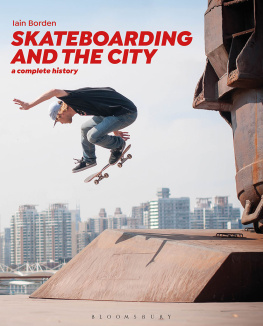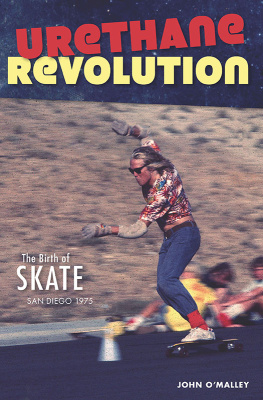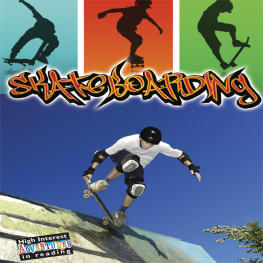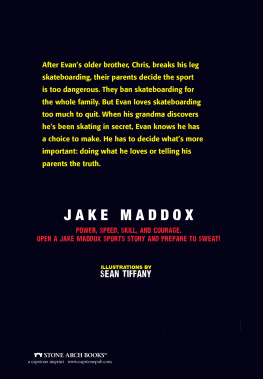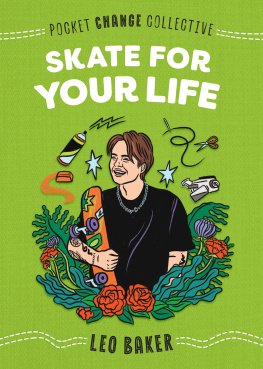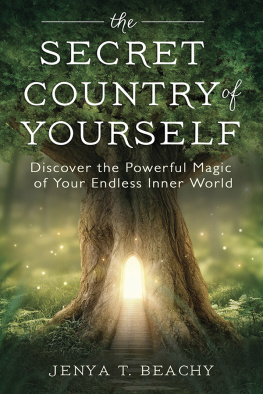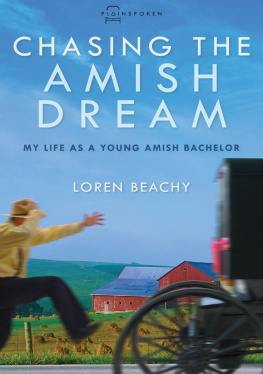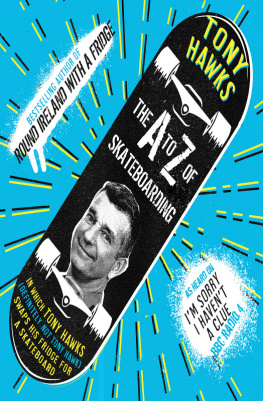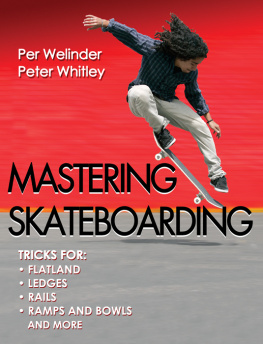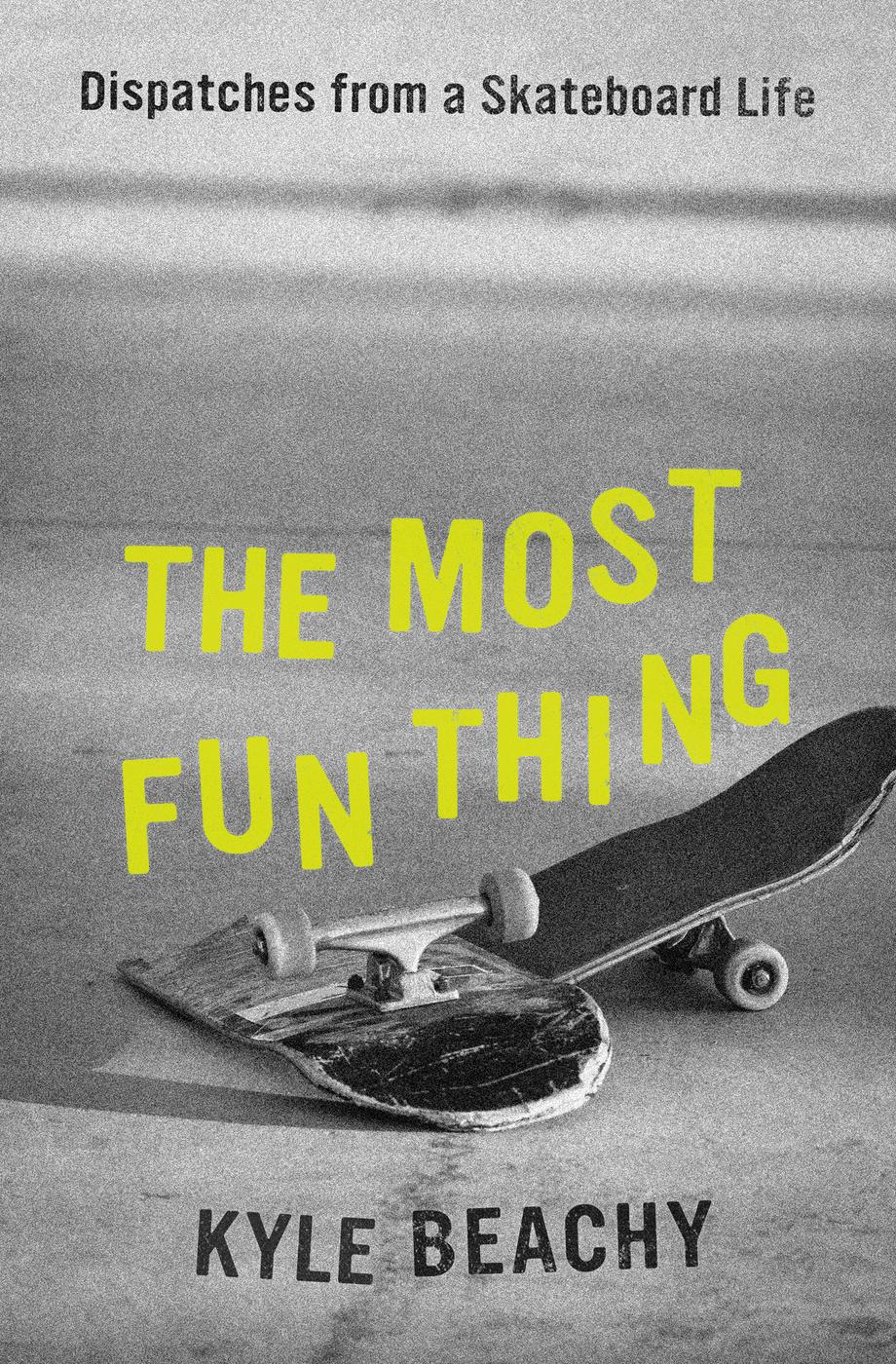
All or portions of the following have appeared in the following publications: On Benches in Push Periodical; For Whom Is the Fun Thing Fun? in The Point; Youre Not Me and A Chronicle of Doing It in The Classical; The Deep Seams in The Chicagoan; A Very Large Puzzle, Making Up Legends in the Era of Zero-Budget Skateboarding, Pretend We Havent Grown, A Most Mundane Perfection, Clearing a Space for Meaning, A Day with Chaz Ortiz, A Serious Man: Mark Sucius Verso in Jenkem; Toward a Poetics of Skateboarding in The American Reader; Nearly in Fanzine; On Bitul Zman in Urban Pamphleteer; Primitive Progressivism in Free Skateboard Magazine; Seven Small Bafflements in Portable Gray.
Copyright 2021 by Kyle Beachy
Cover design by Tree Abraham
Cover copyright 2021 by Hachette Book Group, Inc.
Hachette Book Group supports the right to free expression and the value of copyright. The purpose of copyright is to encourage writers and artists to produce the creative works that enrich our culture.
The scanning, uploading, and distribution of this book without permission is a theft of the authors intellectual property. If you would like permission to use material from the book (other than for review purposes), please contact permissions@hbgusa.com. Thank you for your support of the authors rights.
Grand Central Publishing
Hachette Book Group
1290 Avenue of the Americas, New York, NY 10104
grandcentralpublishing.com
twitter.com/grandcentralpub
First edition: August 2021
Grand Central Publishing is a division of Hachette Book Group, Inc. The Grand Central Publishing name and logo is a trademark of Hachette Book Group, Inc.
The publisher is not responsible for websites (or their content) that are not owned by the publisher.
The Hachette Speakers Bureau provides a wide range of authors for speaking events. To find out more, go to www.hachettespeakersbureau.com or call (866) 376-6591.
Library of Congress Cataloging-in-Publication Data
Names: Beachy, Kyle, author.
Title: The most fun thing : dispatches from a skateboard life / Kyle Beachy.
Description: First Edition. | New York : Grand Central Publishing, [2021].
Identifiers: LCCN 2021010623 | ISBN 9781538754115 (Hardcover) | ISBN 9781538754108 (eBook)
Subjects: LCSH: Beachy, Kyle. | SkateboardersUnited StatesBiography. | SkateboardingHistory.
Classification: LCC GV859.813.B43 B43 2021 | DDC 796.22092 [B]dc23
LC record available at https://lccn.loc.gov/2021010623
ISBNs: 978-1-5387-5411-5 (hardcover), 978-1-5387-5410-8 (ebook)
E3-20210714-DA-NF-ORI
For K, my friend who I married
Explore book giveaways, sneak peeks, deals, and more.
Tap here to learn more.

I suppose, as a poet, among my fears can be counted the deep-seated uneasiness surrounding the possibility that one day it will be revealed that I consecrated my life to an imbecility.
Mary Ruefle
You suck the slice, toss the rind, skate away.
Anne Carson
B egin with a bench, wooden and backless and tucked into a shadowy, quiet corner in the Modern wing of the Art Institute of Chicago. Before it, a towering window overlooks an expansive park known for its playful public art and metallic concert venue and a perimeter of historic buildings that seem to lean over the park like tourists, like fawning onlookers who have for some reason forgotten their pride. Anyway, I dont look out that window. When I come to the bench, I sit facing the other direction. There are visits when I skip the art entirely and come straight here to inhale the strange netherness of the space and watch the feet and shins of people climbing and descending through the pale slats of a floating stairway.
I have spent, you might say, much of my life looking at nothing. Before this bench, it was another bench in a park not far from my home. Ill try to describe how it happened: One afternoon, I headed out for a walk, and coming upon this bench was compelled to stop walking. Here it gets tricky. I can say that I felt or heard something shaking toward the edges of this place, that I sensed the bench was looking at me, a sort of two-way interrogation. So, I sat down as the bench would have me, with my back to this strip of the historic Emerald Necklace in Chicago, the city in a garden, my back to the ashes, beeches, and elms, the Kentucky coffee trees, catalpas, and tulip treeseverything green and living. Instead, I faced the undefined patch of asphalt before me, a crosshatch of unnamed and unaddressed pavement that belongs, I suppose, to Richmond Street, where it intersects the byway and boulevard and turns into a proper residential street to my left.
But here: not a street. Something else. With the museum bench this place shares a sense ofwhat? A kind of benevolent abyss? A peculiar virtue of non-ness? They have no place among a world that commands attention. They are weird and deliberate breaks in the citys system, small moments set aside like gifts. And somewhere at their core, in their chemistry or constitution, these two places owe my experience of them to the activity that has shaped much of my life. In this way, they recall another place I discovered by total accident seventeen years ago, just weeks after I moved to Chicago.
* * *
I have my wife to thank for my casual access to the art museum. I remember passing by the museum one fall afternoon while out for a walk between classes and sending a text that I would like a membership for Christmas. So, it was a gift, or sort of a gift, that three years on has become something of a tradition. Each year, I open a card that reminds me of the time I texted and asked for the membership, and I smile and lean to kiss or embrace her with thanks. One could wonder, if ones the type, where exactly to slot these memberships in terms of generosityis it a gift, really, if its specifically requested? Or is it more a matter of following instructions? And, furthermore, what of the gratitude conveyed by my smile and embrace when I know full well what the envelope contains? Are these lies? And if so, small ones? Or is this the biggest and most encompassing lie there is, the old one about two people living in love and harmony until they die?
In any case, it began with wanting a thing and knowing that the best way to get the thing was to ask for it directly. The alternative was, I guess, to convey my desires in an indirect way so that we might both participate in the romance of giftingto have enough faith in both my performance of desire and my wifes interest in sensing that desire, reading it like a fisherman reads the sea. And then, poofproduce from all of this the perfect gift, given perfectly.
* * *
Theres a line that I think of all the time. It comes from a novel that I love and that nobody else seems to even like, really. The line goes, Why is it so hard to be serious, so easy to be too serious?
I was thinking these words when I returned to that original nonplace several weeks ago. As the citys six elevated local train lines come into the Loop, two of them descend underground. Down here, riders of the Blue Line who are inclined to wander can, with little effort, discover stretches of platform where no trains stopwhere nothing, in fact, starts or stops. Here, everything just continues on either side in a rattling blur of lights. The stretch that I know best lies between the Monroe and Jackson stations. Can I describe to you the promise Ive been trained to see in this long stretch of nothing? As with the museum bench against that window, and the bench before the crosshatched square of asphalt, to occupy this stretch of antiplatform is to sense a contradiction, or perhaps something stolenthe feeling of a thing just beyond my reach.




